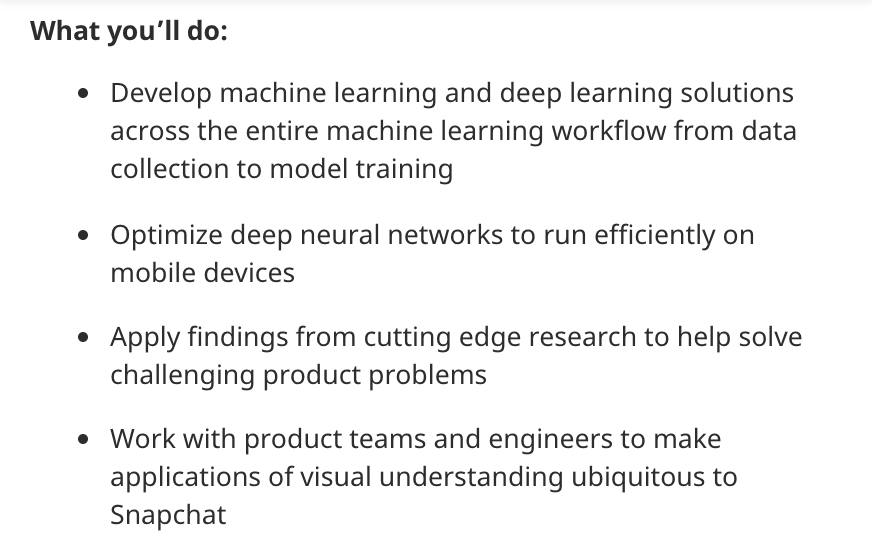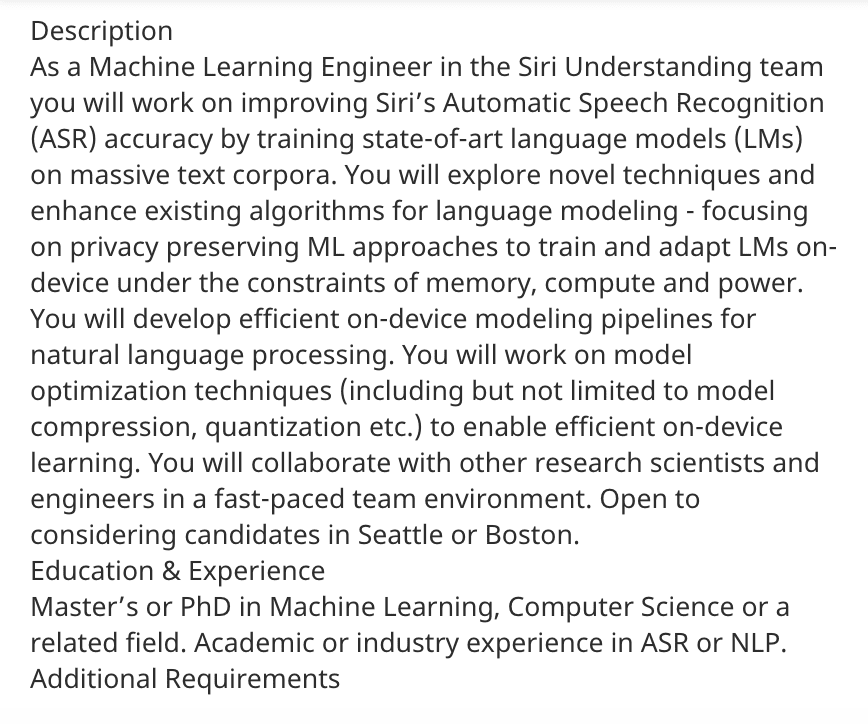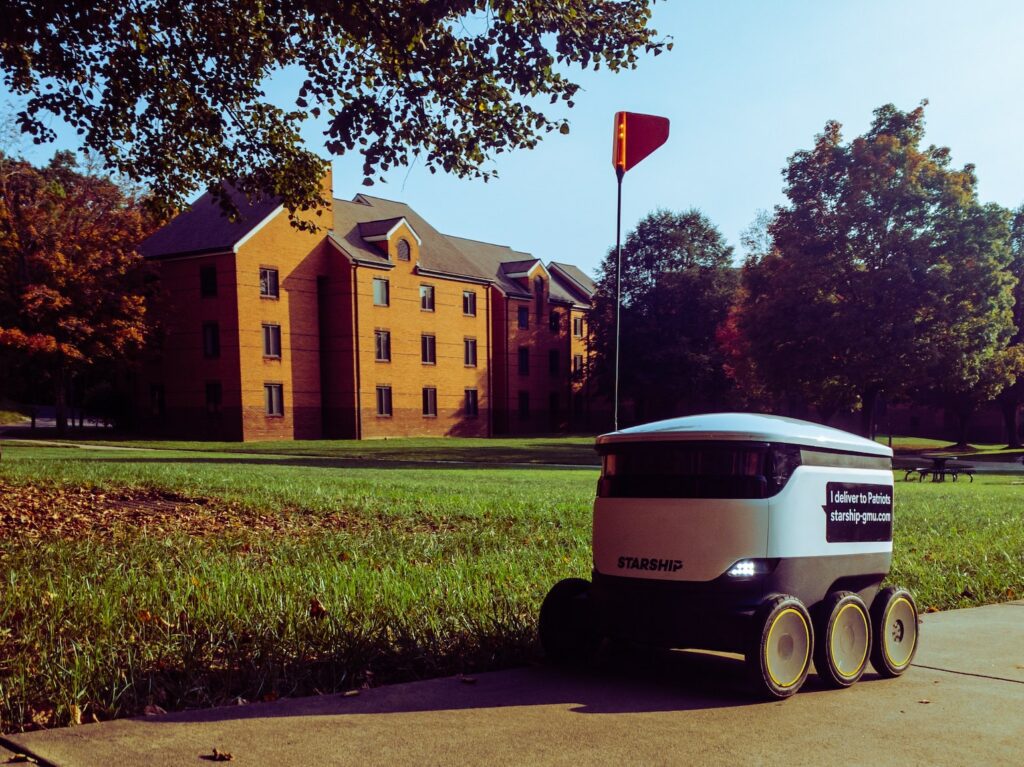Want to work on exciting projects like Netflix’s movie/show recommendations, self-driving cars, image/speech recognition, or disease prediction? A career as a machine learning engineer may be the one for you!
Even if you’re not looking to start a career in machine learning just yet, learning about the role can help you decide if this career path is right for you. Also, even if you have very little tech experience, having a dream career in mind can motivate you and keep you on the right path as you learn to code.
So, what is a machine learning engineer? What does a machine learning engineer do? How high is the average machine learning engineer salary?
In this post, we’ll cover what machine learning engineers do, why there is such a massive demand for ML skills, the difference between data scientists vs machine learning engineers, what machine learning jobs are available, machine learning salaries, how to become a machine learning engineer and more.
Table of Contents
- What Is a Machine Learning Engineer?
- Average Machine Learning Engineer Salary
- Job Outlook & Demand
- How to Become a Machine Learning Engineer
- Is a Machine Learning Career Right For Me?
Disclosure: I’m a proud affiliate for some of the resources mentioned in this article. If you buy a product through my links on this page, I may get a small commission for referring you. Thanks!
What Is a Machine Learning Engineer?
Machine learning engineers are essentially computer programmers who focus on researching, designing, and building self-learning applications and software.
🧠 A machine learning engineer “trains” computers and software to learn on their own — with minimal or no human supervision.
As a career, machine learning is very interdisciplinary, meaning it draws from lots of different fields — particularly software engineering and data science. Learn more about what machine learning actually is.
Since ML engineers “teach” systems and software to learn from massive amounts of data, it’s important for machine learning engineers to have solid data science skills, including the ability to clean and optimize data, understand data models and data structures, query data sets, analyze data and come up with use cases, etc.

☝️ Back to the table of contents
Data scientist vs machine learning engineer
Machine learning engineers often start as data scientists, but they’re definitely different roles, so let’s quickly break down the job of a machine learning engineer vs data scientist.
Data scientists tend to focus on the statistical analysis of data (i.e., collecting and interpreting data to find patterns and trends), and on using that analysis to determine which machine learning models to use, then define and prototype those models.
They then hand off this initial work to machine learning engineers who write code to make everything work in a production environment at a large scale (i.e., where it’s available to users and/or other software). Keep in mind that this is just one of the responsibilities of an ML engineer and how they work with data scientists.
Here’s a machine learning engineer job description from Snapchat to give you a better idea of the responsibilities involved in machine learning engineer jobs:

And another machine learning engineer job description at Apple:

Don’t worry if this is all Greek to you right now; as you gain skills and knowledge about data science and machine learning it’ll come together!
Start coding now
Stop waiting and start learning! Get my 10 tips on teaching yourself how to code.
Average Machine Learning Engineer Salary
💰 Machine learning engineers are some of the highest-paid people in tech. In fact, the average yearly salary for machine learning engineers is a whopping $150,917. Salaries can even go as high as $300K+! (For reference, the avg. yearly salary for data scientists is $119,647 per year and $104,108 per year for software engineers)
That’s because machine learning is an advanced role that requires knowledge of AI, machine learning, data science, and software engineering.
Since the sky-high salaries can bring the averages up, let’s look at typical machine learning salaries based on experience levels:
- The average entry-level starting salary for machine learning engineers is $82,941 a year
- A mid-level machine learning engineer with 5-9 years of experience can expect to earn $112,095 per year
- And a senior ML engineer can earn $155,431 per year
It does take time to climb the ladder as an ML engineer, but you’re already starting on a fairly high rung! But keep in mind, there’s basically no such thing as a true entry-level ML engineer: you’ll almost always need to have experience in other tech roles first.
☝️ Back to the table of contents
Job Outlook & Demand for Machine Learning Engineers
📈 According to the Future of Jobs Survey 2020, AI and machine learning specialists hold the second-highest spot for increasing demand, only after data analysts and scientists.
Many experts argue that the COVID-19 pandemic has accelerated job growth in AI and machine learning as more and more tasks have been automated (e.g., robots delivering pizzas and packages, contactless payments).

85% of CEOs say that AI will significantly change the way they do business in the next five years, according to PwC’s Annual Global CEO Survey.
According to Forbes, AI & Machine Learning expertise are predicted to be the fastest-growing tech job skills in 2021 and beyond. Not only that, but machine learning jobs are projected to be worth almost $31 billion by 2024.
All of this research shows that machine learning is a fast-growing, highly in-demand career, especially since more and more companies are using data to accelerate growth. It’s a great time to start working towards becoming a machine learning engineer!
☝️ Back to the table of contents
How to Become a Machine Learning Engineer
So how do you actually become a machine learning engineer? 👇
Many machine learning engineers have a master’s degree or PhD in a quantitative field like computer science, data science, math, or statistics. (But you don’t need a degree to break into machine learning.)

Often, machine learning engineers transfer over from similar roles like software engineering or data science. Some machine learning engineer job postings even require 2-4 years of professional experience as a software engineer or data scientist to qualify for the role. Starting out in one of these roles, especially if you’re self-taught, can be a great way to break into the field. Here’s how to become a software engineer without a CS degree.
Beyond experience, you’ll also typically need to know the following skills to qualify for a machine learning job:
- Coding in Python, Scala, Java, R, and/or Julia (at least one)
- Statistics, linear algebra, and calculus
- Machine learning frameworks (scikit-learn, H2O)
- Machine learning techniques (NLP, computer vision, decision trees, transformers, clustering algorithms, etc.)
- Deep learning frameworks (TensorFlow, PyTorch)
- Software engineering/computer science skills (design patterns, algorithms, etc.)
- Data science/analysis skills
Ultimately, if you’re hoping to go straight from online courses or bootcamps to becoming a machine learning engineer, that isn’t exactly going to happen since machine learning isn’t an entry-level-friendly job. It typically requires a few years of experience in a related role, or advanced academic experience (master’s, PhD).
☝️ Back to the table of contents
Want to master Python?
Then download my list of favorite Python learning resources.
Where to learn machine learning?
Taking machine learning courses alongside data analysis/data science courses can be a great way to prepare for future machine learning engineer jobs!
👉 Check out these 13 best machine learning courses to help you get started. There are options on Coursera, Pluralsight, edX, and more.
☝️ Back to the table of contents
Is a Machine Learning Career Right For Me?
If you already have a background in coding, data science, and/or math, you have an amazing headstart on your path to becoming a machine learning engineer.
But even if you’re a complete beginner, it could be a great eventual career goal for you to work towards. If you’re passionate and excited about the field, that’s a dream you should follow!
Overall, if you like working on cutting-edge projects, enjoy a challenge, and want to work on things that have the potential to change the world, a job as a machine learning engineer could be perfect for you — as long as you have the dedication and commitment to get there.

